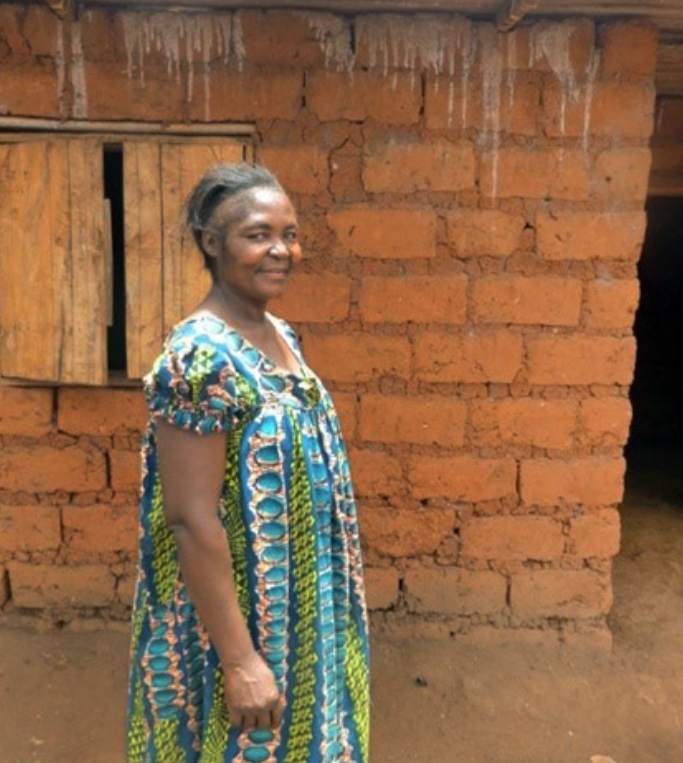



Little pigs help single mother save big
Jeannette Fabove, 53, is a single mother of seven and a member of the Common Initiative Group of Peasant Women in Kieneghang. Before Heifer, Jeannette and her children lived in her elder brother’s three-bedroom house. She was a subsistence crop farmer with poor farming practices and low farm inputs that resulted in low farm outputs.
“I had never heard of a raised-floor pen or treating animals like pigs compassionately. I didn’t know how much water or what kind of feed formulation and vaccinations they needed," Jeannette said.
Give the gift of knowledge with improved animal management training to a farmer like Jeannette.
Her journey with Heifer Cameroon began in 2007. “It all began when Mr. Tiwa Martin told our group about Heifer’s assistance to rural farmers to fight hunger and poverty,” Jeannette said. “Our group applied for assistance, was screened and retained for Heifer's assistance in 2010."
Heifer’s assistance began with a series of trainings to empower the group. These trainings included Heifer 12 Cornerstones for Just and Sustainable Development,, pig finishing husbandry, soil management techniques, Ethnovetarinary and other social trainings such as group dynamics, gender equity sensitisation and HIV-AIDS. Then four piglets were given to each of the group members. Through the application of all the knowledge and skills acquired from Heifer’s trainings, Jeannette successfully raised her four piglets and had an additional 22 piglets farrowed by the sows. She sold 19 at 1,090,000FCFA (about $1,850) with three still left in her pen.
To Jeannette, Heifer’s Cornerstone Improved Animal Management means changing certain aspects like their shelter, inhumane treatment, feeding, healthcare and hygiene, which are very important to their reproductive and productive efficiency. “My pigs fed for five or six months weigh about 265 pounds now compared to 20 pounds before Heifer’s support because I used to feed them only banana and grass,” Jeannette said. Jeannette has never been a victim of the popular African swine fever epidermis since she always prevent it by giving her pigs an ethnoveterinary products, which she was trained to produce.

“Before Heifer’s trainings, I did not know what compost was but through Heifer, I was able to produce a compost heap from the 33,000 pounds of pig manure, which I applied on my farm to improve soil fertility and crop yield. Corn and beans increased from 8,000 pounds to 22,000 pounds and 210 pounds to 700 pounds, respectively, on same piece of land,” Jeannette said. “Compost manure greatly reduced the cost I had been spending on inorganic fertilizer and with the increased corn production and pig productivity, my household income raised from about $500 to about $1,700. My family now eats three meals a day—we drink tea with a roll for breakfast—which was not the case before we met Heifer.”
Revenue earned from project activities permitted her to take care of all her children’s school needs.
“I have a child who just obtained his first degree in Mathematics, another with a Baccalaureate and two others in secondary schools form three and four. All this is thanks to Heifer,” she smiled. Jeannette now lives in her own three-bedroom home built with $1,522 earned from project proceeds.
“In practicing Heifer’s cornerstones, I trained a group of 23 women on improved pig finishing and compost and now four of the farmers have five pigs in their own raised-floor pigsties,” Jeannette said.
You can support Heifer International by donating here.”







